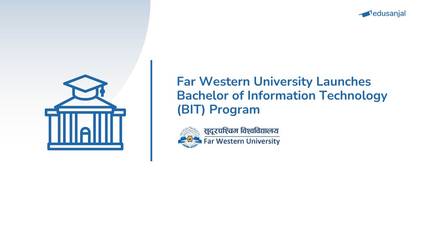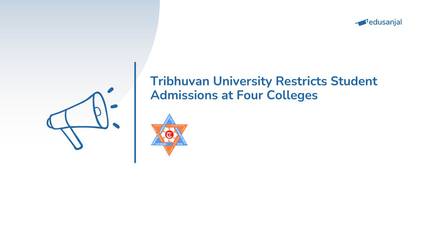Tribhuvan University was established in 1959 and in the initial years, the university had to be based on Patna University for curriculum and the examination. we had the service of the senior professors from India under the Colombo Plan and quite a number of Nepalese had the opportunities to go for further master level studies and Ph.D.research. Gradually, the university developed its own curriculum and examination system. Tribhuvan University continued as the only national university in Nepal for about 27 years. Nepal Sanskrit University was set up in 1986.
Initially, T.U.was started at Tripureshore and it handled only the master level courses of Nepali, English, Political Sciences, History, Culture, Mathematics, Economics, Commerce, Geography and Sanskrit. The bachelor level and intermediate level teaching were done in Government colleges and community colleges in different parts of the country. For almost 13 years all the government colleges and community colleges were affiliated with Tribhuvan University. Tribhuvan University was responsible mainly for framing curriculum and conducting the final examinations.
In 1967 Tribhuvan University was shifted to Kirtipur Campus and the departments of Chemistry, Physics, Botany and Zoology were also initiated under the Faculty of Sciences. With the nationalization of higher education in Nepal under the National Educational System Plan (NESP 1970-1975), all the government colleges and community colleges were converted into constituent campuses of Tribhuvan University.
For almost ten years, there was restriction for the establishment of community or private campuses in Nepal. Later, the constituent campuses of Tribhuvan University could not provide admission to the fast-growing number of students and T.U. had to initiate granting permission for the new community and private campuses in 1979. There are at present 60 constituent campuses and 826 affiliated community and private campuses under Tribhuvan University in 2011.
The government of Nepal adopted a multi-university policy as recommended by Royal Education Commission of 1983 and the National Education Commission of 1992. The following additional eight universities have already been established in the country.
| Name of the University | Established Year |
| Tribhuvan University | 1959 AD |
| Nepal Sanskrit University | 1986 AD |
| Kathmandu University | 1991 AD |
| Tribhuvan University | 1994 AD |
| Nepal Sanskrit University | 1997 AD |
| Kathmandu University | 2005 AD |
| Tribhuvan University | 2010 AD |
| Nepal Sanskrit University | 2010 AD |
| Kathmandu University | 2010 AD |
There are three deemed universities of B.P.Koirala Institute of Health Sciences, National Academy of Medical Sciences, and Patan Academy of Health Sciences. All these deemed institutes of health sciences are under the Ministry of Health and these institutes get required budgetary and other support from the Ministry of Health. Currently, a number of universities including National Open University are in the pipeline. Inspite of a number of universities, T.U.still bears the burden of higher education in Nepal.
According to a study, TU accounted for 90 percent of the total student's enrolment in 2009/2010. TU constituent campuses accounted for about 40.93 percent and the affiliated campuses accounted for about 59.07 percent of the total student enrolment of 3,89,460 in 2011/2012. Almost all the community campuses are affiliated with T.U. and more than 70 percent of the total private campuses are affiliated with T.U. Tribhuvan University organizes final examination for all the community and private campuses affiliated to T.U.This has added an additional burden to the T.U. Examination Controller Office and it has become very difficult to bring out the results of the final examination on time. Generally, a delay of a few months in this context has been a common phenomenon that, in turn, adversely affected the academic calendar.
T.U. has evolved as a mega university with 60 constituent campuses and 826 affiliated community and private campuses. Quite recently, T.U. has brought out the academic calendar after a series of intensive interactions and discussions with stakeholders like the students unions, professors organizations,decision-makers, administrators responsible for examination and other concerned authorities of the university.T.U.should stick to carry out the academic calendar.
T.U. has already delegated the entire authority of conducting a final examination to the Institute of Medicine, Engineering, Forestry, And Agriculture & Animal Science. Institute of Science and Technology for master level examination and Faculty of Management for professional studies,e.g. BBA, BTTM, BHM, BIM, and MBA. The results of the final examination of the technical institutes, M.Sc and professional degrees have been well managed. The results are on time .
It is only in faculties of Education, Management, Law, and Humanities & Social Sciences, the university is having an acute problem of management of the examinations due to the excessive number of students. T.U.Controller of Examination Office needs to be further strengthened by recruiting the required manpower at Balkhu office, regional examination offices at Biratnagar, Pokhara, and Nepalgunj; reestablishing the regional examination office at Mahendranager; by providing vehicles; by improving the process of collection & redistribution of the answer books. Required budget for all these improvement programs should not be a problem, since the examination fees have been substantially raised two years back.
As recommended by experts in the report " The Strategic Vision for Twenty Years",Tribhuvan University has already adopted a number measures to resolve the pressing problems, to enhance the quality of education & research and to promote effective management of the constituent campuses.The Decentralization Regulation of 2055 and Autonomy Regulation of 2062 can be cited as the examples in this context.Tribhuvan University has already decentralized 43 constituent campuses.It is reported that ten additional constituent campuses are already in the process of decentralization. Now there are only seven constituent campuses, which are yet to be decentralized. These campuses are Ratna Rajya Laxmi Campus,Saraswati Campus,Lalitkala Campus, Dhaulagiri Campus of Baglung,Gorkha Campus,Mahendra Bindeshore Campus of Rajbiraj and Kirtipur Campus.
It is generally stated that the decentralized constituent campuses have successfully mobilized substantial local resources for strengthening academic programs, organized activities and maintained relatively better management of the campuses. As such, there will be growing pressure on the remaining seven campuses to go on decentralization.
The Autonomy Regulation of 2062 has been well amended in 2068 and Tribhuvan University has granted autonomy to Mahendra Ratna Campus of Ilam and Central Campus of Technology of Dharan.
Tribhuvan University has been continuing vigorous effort to grant autonomy to a few more constituent campuses and technical institutes.Central Campus of Technology, Dharan is the only food technology constituent campus under the Institute of Science and Technology.
Once the autonomy status of this campus is well established, it should be entrusted with the entire responsibility of the examination. So that it will set an excellent example and gradually it will encourage other constituent campuses to opt for the autonomy.
The main campus of Tribhuvan University at Kirtipur has been visualized as a centre for excellence for quite a long time.There are infrastructures i.e. academic buildings, auditoriums, central library, sport grounds, well established research centres well noted & experienced professors and recently completed optical fibre network. There are 30 central departments at Kirtipur Campus.These central departments have master level programs and Ph.D.programs. A number of central departments have already started M.Phil.programs. These are central departments of Economics, Population Studies, English, Nepali, Management and education.
The Central of Sociology & Anthrophology is in the process of initiating the M.Phil.program.The other departments also should plan ahead for starting the M.Phil. program. The M.Phil programs are very essential because of two main reasons. First, it is the very important step to Ph.D.program. The duration ranges from one year to eighteen months. Even the community and private campuses can provide opportunities to their faculty members for M.Phil program. This will, in long run, help in the enhancement of quality education. After completion of M.Phil. Program, the teachers can continue research not only for Ph.D. but also for teaching learning purposes. So all the departments should have well furnished seminar room with multi media projects, overhead projects and other necessary equipments.
The principal office has been assigned the responsibility of administrative, financial, co-ordination of the central departments, maintenance of services and overall management of the properties & serene environment of Kirtipur campus. Unfortunately, this central campus has not yet been decentralized.Efforts should be made to further strengthened master level, M.Phil and Ph.D.programs; enhance quality education and research in all the central departments and proper co-ordination with a view to make Kirtipur as a centre of excellence.
*Dr. Amatya is former Rector of T.U.












